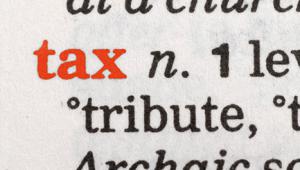In 2016, corporate tax revenues accounted for an average of 13.3% of total tax takings across the 88 jurisdictions for which data was available, the OECD found in a report.
This is an increase from 12% in 2000.
Developing countries rely even more on taxes paid by companies, making up, on average, 15% of all tax revenues in Africa and 15.4% in Latin America and the Caribbean. This compares with just 9% in OECD countries.
The OECD highlighted that there has been a “clear trend” of falling corporate tax rates over the past two decades. On average, the rate fell from 28.6% in 2000 to 21.4% in 2018.
More than 60% of the 94 jurisdictions for which tax rate data is available had statutory tax rates greater than or equal to 30% in 2000, compared with less than 20% of jurisdictions in 2018.
The report highlighted that in five jurisdictions – Egypt, Kazakhstan, Malaysia, Papua New Guinea and the Philippines – corporate tax revenues made up more than one-quarter of tax revenues in 2016.
In the Bahamas, France, Iceland, Slovenia and Tokelau, corporate tax revenues made up less than 5% of total tax revenue in 2016, it added.
Alongside the report, the OECD published a database of comparable statistics and analysis from around 100 countries around the world.
In September last year, the OECD said advanced economies had cut both corporate and personal income taxes under reforms.
At the time, the organisation’s tax director, Pascal Saint-Amans, said the tax reforms were “long overdue”.
He added: “While these corporate tax cuts have created some concerns [about] a ‘race to the bottom’, most of these countries appear to be engaged in a ‘race to the average’, with their recent corporate tax rate cuts now placing them in the middle of the pack.
“We will be closely watching how other countries respond to this trend in the future.”
Earlier this month, the EU’s rules to stop corporate tax avoidance came into force to close loopholes in the system. ENDS







